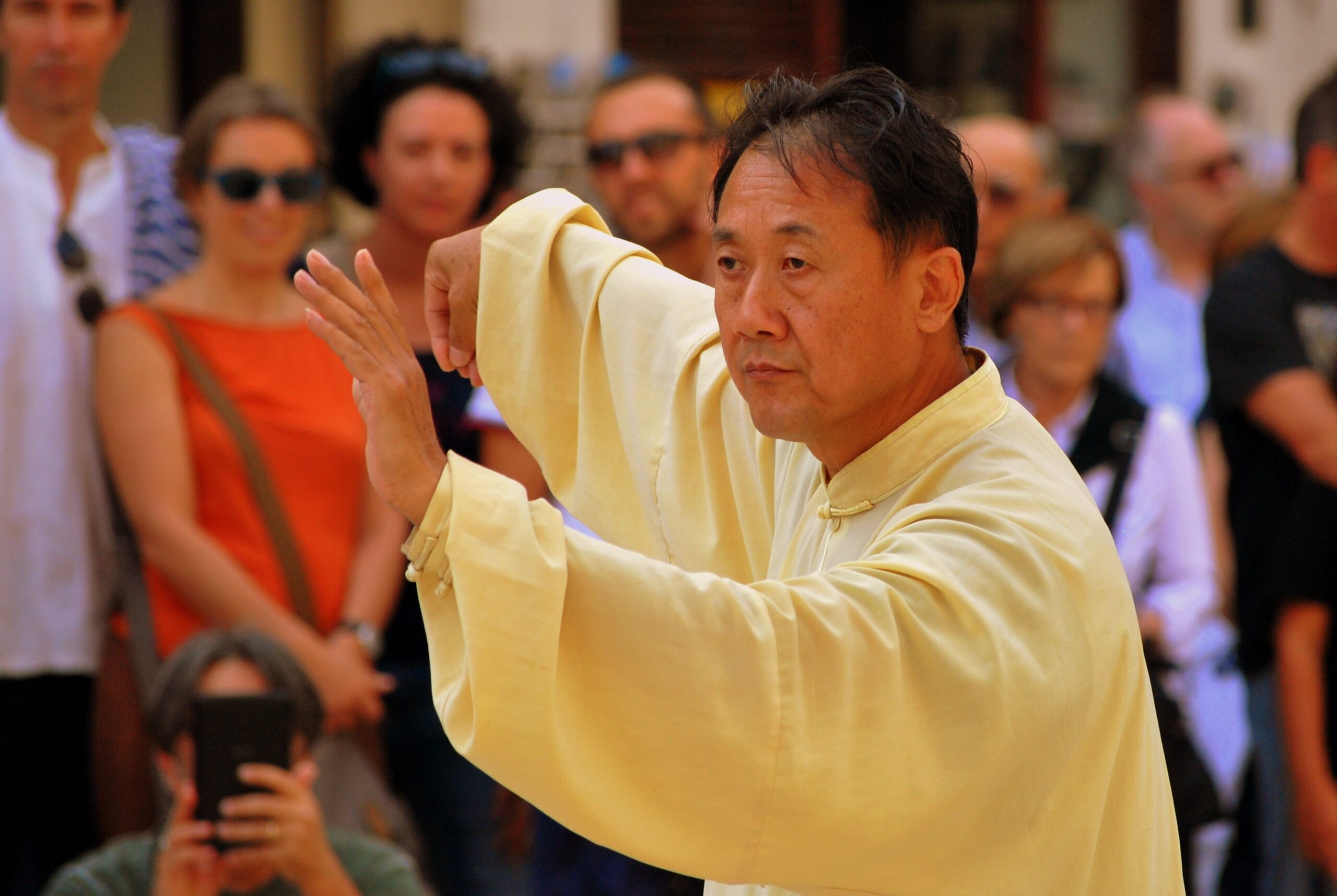Mind Power Yi:
A Chi Guidance System

A mind power known as yinian or yi consciousness is used in energy healing, self-defense and spiritual development to channel chi energy to its intended target.
Often roughly translated in English as focused intent or visualization, it is actually a sum of much more than these features. It is both a mindset, an attitude if you will, but also a type of consciousness.
One story comes to mind of how yi intent and visualization can play such a major role in the practitioner’s ability to channel energy.
I recall about thirty years ago when I was still a young and budding student, my father telling this story to my master:
In the early 1900s when China was still under imperial rule, my great-granduncle was a scholar who came from a wealthy family. When he was young, his family purchased an orphaned slave girl to work on their farm. The girl was only sixteen years old, but she was immensely strong and unbeknownst to her master’s family, very skilled in martial arts.
My great-granduncle had recently returned home from his studies and one day was practicing his martial arts when he heard the new slave girl’s scoffing laughter. He became angry and challenged her to a round.
To his surprise, he could not best her, no matter how hard he tried. So impressed was he with her prowess that he eventually became her student and later married the girl.
Eventually my great-granduncle became well known for his own skill in martial arts, but he trained so hard that he eventually became blind.
Still, it was said that his hearing was so keen and his mastery of the chi so advanced that if several leaves fell from a tree, he could use his chi to spear them all simultaneously with a single throw of several toothpicks in his hand.
However, to the end of his days, as renowned as he was and as little known as his wife was, he insisted his wife was more skilled in her martial arts than he.
One of her accomplishments that he was unable to master was to punch energy through a thin sheet of rice paper and smash the set of bricks behind the rice paper without disturbing the paper.
Try as he would, my great-granduncle could not pass his energy through the rice paper without thoroughly destroying the fragile paper along with the bricks.
Destroying the bricks without physical contact would have been impressive enough, but how was it possible to pass chi through the rice paper without even disturbing it?
When my father relayed this story to my master, my master said one Chinese word that I was to soon become very familiar with: yinian.
Most scientists researching distant healing attribute focused “intent” as the essential key to guiding the healing energy to its intended target but qigong practitioners know the mind power yi is much more than that. Like chi, this little understood yinian is a very difficult concept to explain: yi consciousness encompasses focused intent with visualization, and a “still and detached mind”.
Also called yinian, (i.e. yi concentration or yi mind), the yi consciousness is a concept that describes a higher level of intense concentration that traditional martial artists or those who practice deep meditation know how to engage:
then empty the mind of all extraneous thoughts,
letting go of ambition, sublimating your will
as you guide your chi toward the image or target you need to reach.
On the other hand his wife used her mind power yi to channel and direct the chi past the paper toward the intended target, with the result that the energy was able to penetrate the paper harmlessly before destroying the bricks.
Later, it dawned on me:
If you wanted to inflict superficial injury on your opponent,
then focus your energy just at the point of contact.
But to inflict a mortal blow,
use the mind power yi to target the energy
through and beyond your opponent’s body.
Many years later, I was to teach this to two of my tai chi students.
When one student used his body to hold in place a mu ren zhong — a wooden post commonly used by martial artists for sparring practice — no matter how much chi the other transferred into his punch, he was unable to shift the post from the other’s grasp.
I knew these students had cultivated enough mind power and chi to be able to succeed, but that their misdirected concentration was impeding them. So I instructed them to visualize passing the chi directly through the wooden post to the opponent’s point of contact.
Several days later, they came back to class and reported to me that when they changed their focused intent, visualization, and intended target as directed, the partner holding the mu ren zhong felt the impact of the chi so strongly — as if the wooden post had ceased to exist and the receiver became the prime target — he was knocked over several feet away!
Many years ago, my master was able to demonstrate a variation of yinian to his senior students:
He and another senior student stood bare-chested back to back of each other. Then he directed another student to throw a chi-laden punch towards his chest.
With a loud “hmph” my master used his mind power to cause the energy to pass harmlessly through his own body and toward the other senior student standing back to back with him. The next day, while my master remained unharmed, the other student sported a large bruise on his chest!
Make no mistake: this particular mind power is absolutely essential in channeling the chi energy to its intended target. Like a missile, yi acts as a guidance system for the energy. To put it another way, it is the steering wheel for the vehicular chi. Without yinian, the chi would be useless and have nowhere to go.




